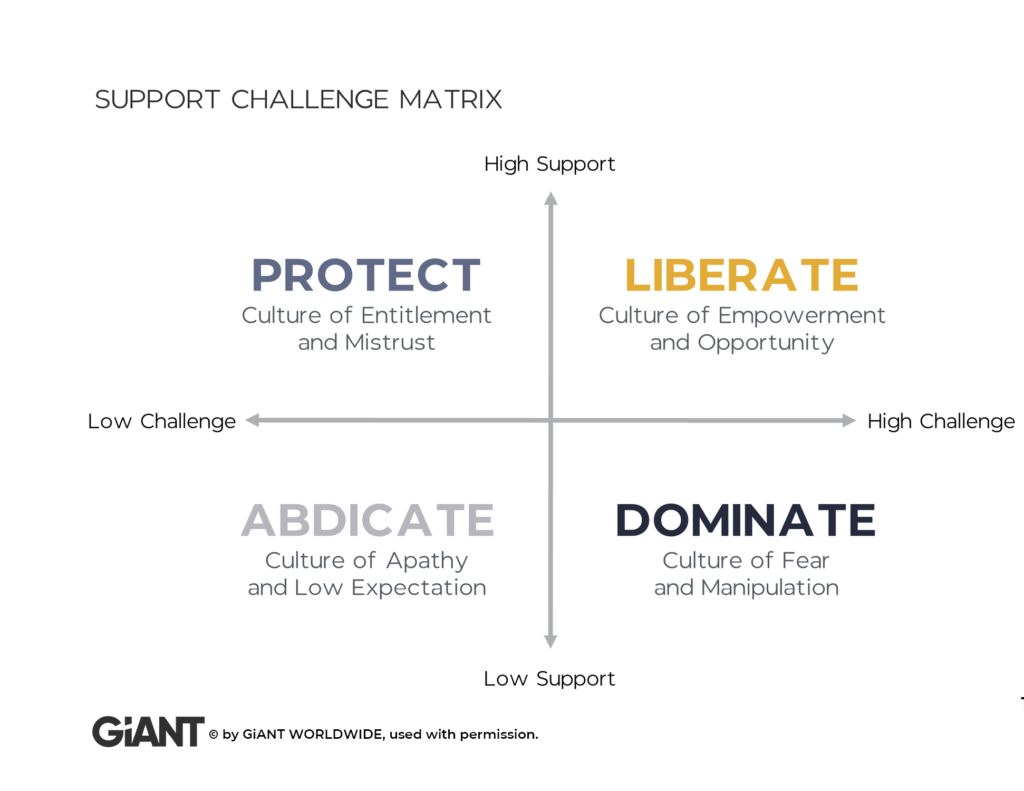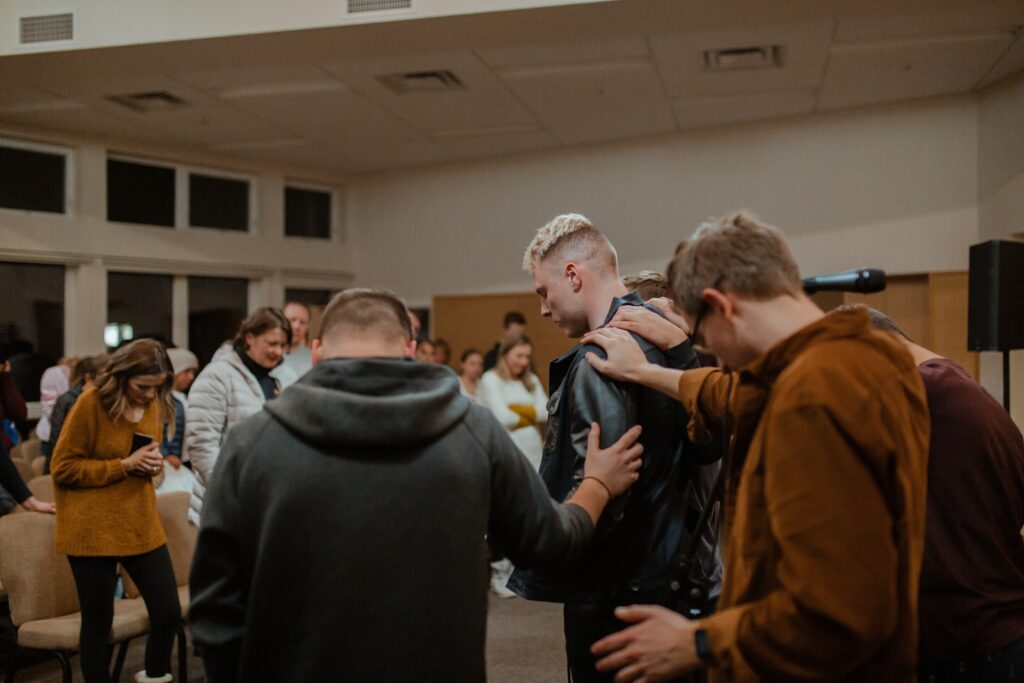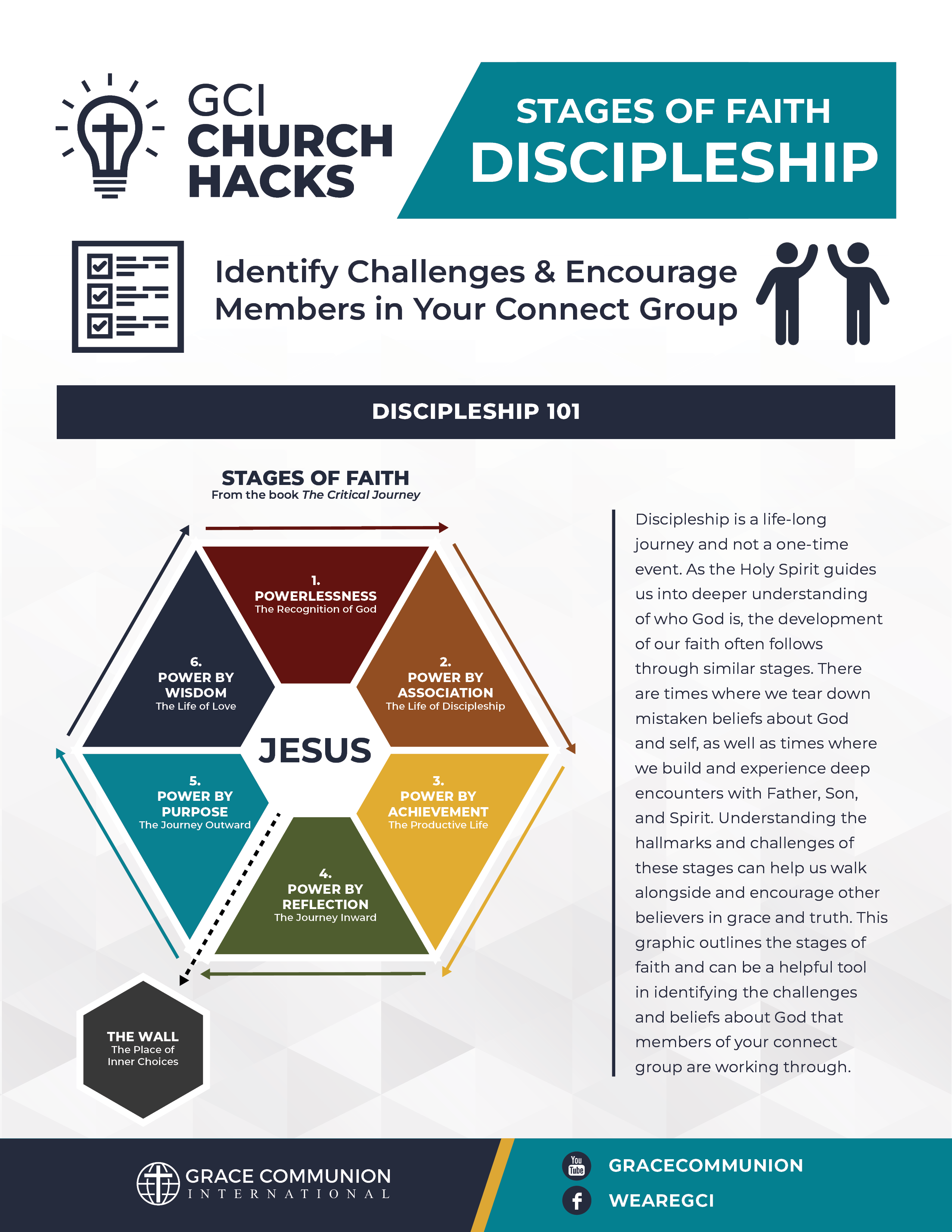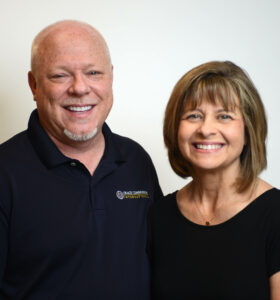Speaking Of Life 3033 | The Trapped and the Free
Control, authority, influence desire to possess this kind of power, has set many in the course of human history on a road to destruction. Jesus makes a way for each of us and frees us from the struggle of striving to make our own way. Through him we are free indeed!
Speaking Of Life 3033 | The Trapped and the Free
Greg Williams
Her name was Salome. The stepdaughter of Herod makes a brief appearance in Mark 6, her story ending with the gruesome image of John the Baptist’s head on a silver platter. We know almost nothing for sure about Salome, and the Bible only mentions her here in this strange story where she dances for Herod and his guests and he promises her “up to half his kingdom” in gratitude. She asks for the prophet’s head.
Looking closer at the details of this story we can see how trapped the characters were. First, there’s Herod. He’s a puppet king of the empire trying to show off to his guests. His new stepdaughter dances for them and he’s enchanted by lust. He then indulges his pride and makes a spectacle of this promise to give her up to half his kingdom.
He’s trapped—by his own inappropriate desires, by his prideful actions before his guests, by the powerful people who actually control him. He couldn’t give away half his kingdom even if he wanted to!
Salome is trapped by her and her mother’s political aspirations and bloodthirst for power. Trapped by her sexuality, she uses it as a weapon, rather than a source of joy. Trapped by her drunken stepfather making her entertain his guests.
This brief, tragic story shows the breakdown of the kingdom of humanity next to the kingdom of God. Pride, power, lust, and scheming internally combust in short order. The grisly final spectacle of John the Baptist’s death shows the brutal fruits of the kingdom of this world that is falling away.
Encapsulating this grim narrative on both sides is the story of Jesus sending out the twelve. He sends them out in freedom and generosity to share the message of the gospel with the world. Herod and Salome, in contrast, grasp tiny morsels of power to their own destruction.
Like the twelve, Jesus sends us out in freedom and generosity to share the Gospel, and we participate with him in a spirit of generosity, spontaneity, and love. But let’s be honest, there are also times we find ourselves feeling trapped—grasping and scheming for the empty illusions of this world.
Notice what Paul said in his letter to believers in Corinth:
Where the Spirit of the Lord is, there is freedom.
2 Corinthians 3:17
Where God is, there’s room for everyone at the table, there’s space for everyone to be themselves. When we feel trapped, we need to return to the center—to Jesus. We can ask the Holy Spirit to remind us of our freedom in Christ.
Because it is in submission to the rule of our true king, Lord Jesus—not to modern-day Herods, nor to the deception of self-rule —that we find authentic freedom. May the Holy Spirit continually remind you of the freedom you have in our Lord, Jesus Christ.
I’m Greg Williams, Speaking of Life.
Psalm 24:1-10 · 2 Samuel 6:1-5, 12b-19 · Mark 6:14-29 · Ephesians 1:3-14
The theme for this week is our redemption story, strange and beautiful. We are reminded that God’s romance with humanity is both familiar and uncanny. Our call to worship Psalm gives us insight into God working through the dynasty of Israel through the centuries. 2 Samuel 6 describes the sacred and dangerous work of moving the Ark of the Covenant. Mark 6 tells the tragic end of the story of power and pride. Our sermon is on Ephesians 1:3-14, in which Paul tells the compressed story of our faith from before creation and into eternity.
The Choice, the Plan, the Inheritance
Ephesians 1:3-14 ESV
Begin with a reading of Ephesians 1:3-14 ESV.
Ever since human beings could talk, we’ve been telling stories. These narratives—everything from heartbreaking romances to bad jokes—are the air we breathe. In Hawaiian pidgin dialect, the slang term for having a casual conversation is to “talk story.”
We tell these stories to restate our identity—to establish our image against the ever-changing background of life. This can be especially at work during family gatherings. You’ll hear (yet again) the story how your grandparents fell in love or when your uncle headed off to war or when your great aunt nursed the family through the scarlet fever.

Some of the most poignant of these tales end with some connection to the larger world. “I learned to ride a bike the day they announced the end of World War 2 on the radio” or “I started my job/retired/fell in love the afternoon the space shuttle went down.”
We often connect our personal narrative to something the whole world was watching. We root ourselves in history.
You could offer a family story at this point as an illustration.
In a way, this is what Paul does at the beginning of Ephesians. He recites the story of God’s history of salvation from before the earth all the way through the end of time. This psalm starts the letter with a note of praise that sums up the larger gospel, and the rest of the book shows the Ephesians their place in the picture. These verses are one long, complex sentence in the original Greek!
Story experts will sometimes talk about the essentials we find in every story. They might break down the billions of narratives in history into a few basic elements. Many stories deal with the past, present and future, which is what Paul does in reciting our story of faith in Ephesians 1. He starts with a blessing and a statement:
Blessed be the God and Father of our Lord Jesus Christ, who has blessed us in Christ with every spiritual blessing in the heavenly places. (Ephesians 1:3 ESV)
Paul is saying we are blessed in Christ, and because of that we bless God our Father. Further, he says we are blessed with spiritual blessings in heavenly places. Then to explain this, he looks at the past, the present and the future.
- Past—the great choice God made before time.
- Present—the great plan to bring the kingdom into the world.
- Future—the inheritance of the redeemed universe that we will enjoy as redeemed people.
Paul’s story restates our faith and connects us to the great epic in a way that speaks to our day as well as to his.
The Past
Even as he chose us in him before the foundation of the world, that we should be holy and blameless before him. In love he predestined us for adoption to himself as sons through Jesus Christ.” (Ephesians 1:4-5 ESV)
The past in a narrative is often told through the back story—the background that drives the action. In Star Wars, Luke Skywalker’s Jedi lineage connects him to the past. Romeo and Juliet’s rival families create the background and the tension of their tragic romance.
In Paul’s story, it’s the choice. This choice was made before the foundation of the world—before creation. This is the metaphysics of this story, the deep narrative behind it.
This is the kind of verse that has made for a lot of difficult discussions in Christian history. Did God choose us or did we choose him? Is it his grace reaching down to us or our will reaching back toward him?
Which is it? The short answer is both. We don’t know how it all works and we never will, but somehow these two forces work together. While this idea leads to a larger discussion in theology and philosophy that’s very important, we will only look for a moment to the theme Paul is talking about in this letter. The story of our salvation starts with God’s choice because of God’s love.
From humanity he chose Israel. From Israel he chose one lineage. From that lineage he chose one family. From that family, he chose the womb of one teenage girl and through her came to us himself.
The story of salvation is not a mess of false starts and Plan Bs. It’s not God giving us law, us screwing it up and then God having to send Jesus as the contingency plan. God’s choice ran through it all, telling the story with intention and love before the world began.
Why did he do this? Why did he make this choice to save us, knowing the loss and pain that would come in the process?
In love he predestined us for adoption to himself as sons through Jesus Christ, according to the purpose of his will, to the praise of his glorious grace (Ephesians 1:4-6 ESV)
In love…his will…to the praise of his glorious grace. Nowhere in here does it say that God chose us because we were the best and brightest, or the most lovable or the most righteous. Nor does it ever say that he needs us somehow for his plan to come together.
No, God did not choose us because of who we are but because of who he is. Because of his love, his will, his glory—these things will never change. He loves us because he loves to love. He makes us worthy of his love, we don’t achieve that worth somehow. And we can never lose it.
The Present
In him we have redemption through his blood, the forgiveness of our trespasses, according to the riches of his grace, which he lavished upon us, in all wisdom and insight making known to us the mystery of his will, according to his purpose, which he set forth in Christ as a plan for the fullness of time, to unite all things in him, things in heaven and things on earth. (Ephesians 1:7-10 ESV)
The present—where we find the rising action. The quest, the conflict—is a central element of every story. There’s no Star Wars if Luke never starts his quest to become a Jedi. There’s no It’s a Wonderful Life if Jimmy Stewart doesn’t meet his guardian angel.
Paul brings us from the past—God ‘s loving choice of us, to the present—God’s plan to transform the world in the here and now with us working in participation with him.
Throughout these words of hope, Paul describes us caught up in the work and will of God. He picks this theme up several times in the book:
For we are his workmanship, created in Christ Jesus for good works, which God prepared beforehand, that we should walk in them. (Ephesians 2:10 ESV)
“Created in Christ Jesus for good works”—there is nothing here about pleasing God or earning his favor through these works. These works are an invitation for us to join in his work in the world.
In the modern church, we can over-focus on the initial experience of salvation—“getting saved.” Crusades, Christian rock concerts, youth events all focus on this transactional moment where people get a “ticket to heaven.”
This can leave a new Christian saying: “Okay, what happens now?” Maybe there’s some besetting sin they need to take care of—don’t sleep around, don’t drink too much, don’t say swear words. But surely there’s something more to life in Christ than not doing stuff?!
The answer is yes, of course, and part of that is the “good work” we were created in Christ Jesus to do before the world was made. God’s kingdom is breaking into the world, and we are called to be part of that work—not because he needs us, because he wants us, and he wants us to experience the joy in participating in what he is doing.
So what does that mean for you? Maybe you don’t have a legendary deep jungle mission or a huge church at your disposal. You may work 40 hours a week.
There’s a story about the great theologian, Martin Luther, in which a man approached him at the end of a sermon. He told the old German, “I’ve become a Christian, what should I do now?” Luther asked him what he does for a living and the man said that he was a cobbler. Luther responded, “Then make a quality shoe and sell it at a fair price—to the glory of God.”
The kingdom comes in inches, not miles. Living and working to the glory of God, treating those we come across with grace and love, this is usually how the kingdom appears rather than dramatic crescendos.
The “good work” God has prepared for us in Christ will range from the exciting to the ordinary, but don’t discount everyday acts of obedience. This is the plan—as we see in verse 10—the present part of the story.
The Future
In him we have obtained an inheritance, having been predestined according to the purpose of him who works all things according to the counsel of his will, so that we who were the first to hope in Christ might be to the praise of his glory. In him you also, when you heard the word of truth, the gospel of your salvation, and believed in him, were sealed with the promised Holy Spirit, who is the guarantee of our inheritance until we acquire possession of it, to the praise of his glory. (Ephesians 1:11-14 ESV)
Every story has an ending. Bad endings, cheap endings, happy-ever-after endings—there’s all kinds. There’s conflict and then there’s resolution—the cool down, the ride off into the sunset.
Again, this story Paul tells is one long sentence in Greek—verses 3 through 14. This is the gospel in microcosm, and the ending of the story points to the future. The ride off into the sunset here is actually into the sunrise.
The word he uses twice here is “inheritance,” which should get our attention. Inheritance in the ancient world is different than the way we might think of it today. In our modern world, the inheritance is usually cash or something that can be sold.
In the ancient world, you inherited a business or property or both. But you were never supposed to sell these things and move onto a different life. You inherited a legacy—the property and life you were meant to carry on.
This is the kind of inheritance Paul talks about here. One of the main issues we run into at this point is the modern misconception of “going to heaven.”
Our ultimate hope is not some far-away place where we will leave this world behind. Our hope is the new heavens and the new earth as described in Revelation 21. Our ultimate hope is this world, right here, resurrected under the rightful rule of the true Lord.
This world, because of sin, is corrupted. However, it wasn’t meant to be destroyed, but resurrected. Like Jesus’ post-Easter body, the resurrected earth will incorporate this earth somehow. God’s dimension and our dimension will be reunited at long last.
This is our inheritance. This is our true identity as the resurrected royalty of the new heavens and new earth. Our past, which began even before Abraham, connects with our present, where the kingdom breaks into the world by the power of the Spirit. Our future is the coming together of our universe and God’s dimension completely. As Paul puts it:
…making known to us the mystery of his will, according to his purpose, which he set forth in Christ as a plan for the fullness of time, to unite all things in him, things in heaven and things on earth. (Ephesians 1:9-10 ESV)
“To unite all things in him.” Jesus is the lynchpin, the centerpiece that brings the whole story—and all the universe—together. The human story, shattered at the Tower of Babel and so many other places, is brought back together in Christ.
The choice. The plan. The inheritance. This is the gospel story—the past, present, and future of the human story. What looks like wandering, disparate stories is one long epic.
You feel like royalty because you are; and this grand story feels familiar because it’s yours.
Questions for Sermon: “The Choice, the Plan, the Inheritance”
- Do you have a favorite family story? One that reminds you who you are and where you came from? Maybe a tale that gets passed around at family gatherings?
- We talked in the sermon about telling the story of faith like Paul does here. How does telling the story of faith help us hold onto it? How can we drown out our noisy modern world with the story of faith?
- The kingdom doesn’t usually come by miles, but by inches. How can you bring the kingdom in—change the world for God’s glory—in your daily life? At work? What is God calling you to?
Questions for Speaking of Life: “The Trapped and the Free”
- We talked about how the characters in this story, Herod and Salome, are trapped. Do you believe that sin and pride can trap us, even when they claim to offer freedom?
- “Where the Spirit of the Lord is, there is freedom” (2 Corinthians 3:17). What does this “freedom” mean? How does it appear in our lives?
Quote to ponder: “We are, as a species, addicted to story. Even when the body goes to sleep, the mind stays up all night, telling itself stories.” ~Jonathan Gottschall, literary scholar



 By Michelle Fleming, Media Director
By Michelle Fleming, Media Director


 By Anthony Mullins, US Regional Director, Southeast
By Anthony Mullins, US Regional Director, Southeast







 “I love the idea that you can sit down and get to know 6-12 people, or so, in an intimate setting. In an intimate way, that you would never get to do at church. At church you’re going to spend time afterward talking to a couple of other people and it stays relatively shallow, even if it goes deep, it is not going to go nearly as deep as a connect group. And so, you bond in way that not only makes a difference now but it builds relationships for the future, and connects relationships in a deeper and more profound way…Right now, especially during COVID, connect groups are really important because people aren’t able to come together at church, in some places, because of the virus. So, connect groups are vital now, but I think they are also very important once we open back up again.”
“I love the idea that you can sit down and get to know 6-12 people, or so, in an intimate setting. In an intimate way, that you would never get to do at church. At church you’re going to spend time afterward talking to a couple of other people and it stays relatively shallow, even if it goes deep, it is not going to go nearly as deep as a connect group. And so, you bond in way that not only makes a difference now but it builds relationships for the future, and connects relationships in a deeper and more profound way…Right now, especially during COVID, connect groups are really important because people aren’t able to come together at church, in some places, because of the virus. So, connect groups are vital now, but I think they are also very important once we open back up again.”


